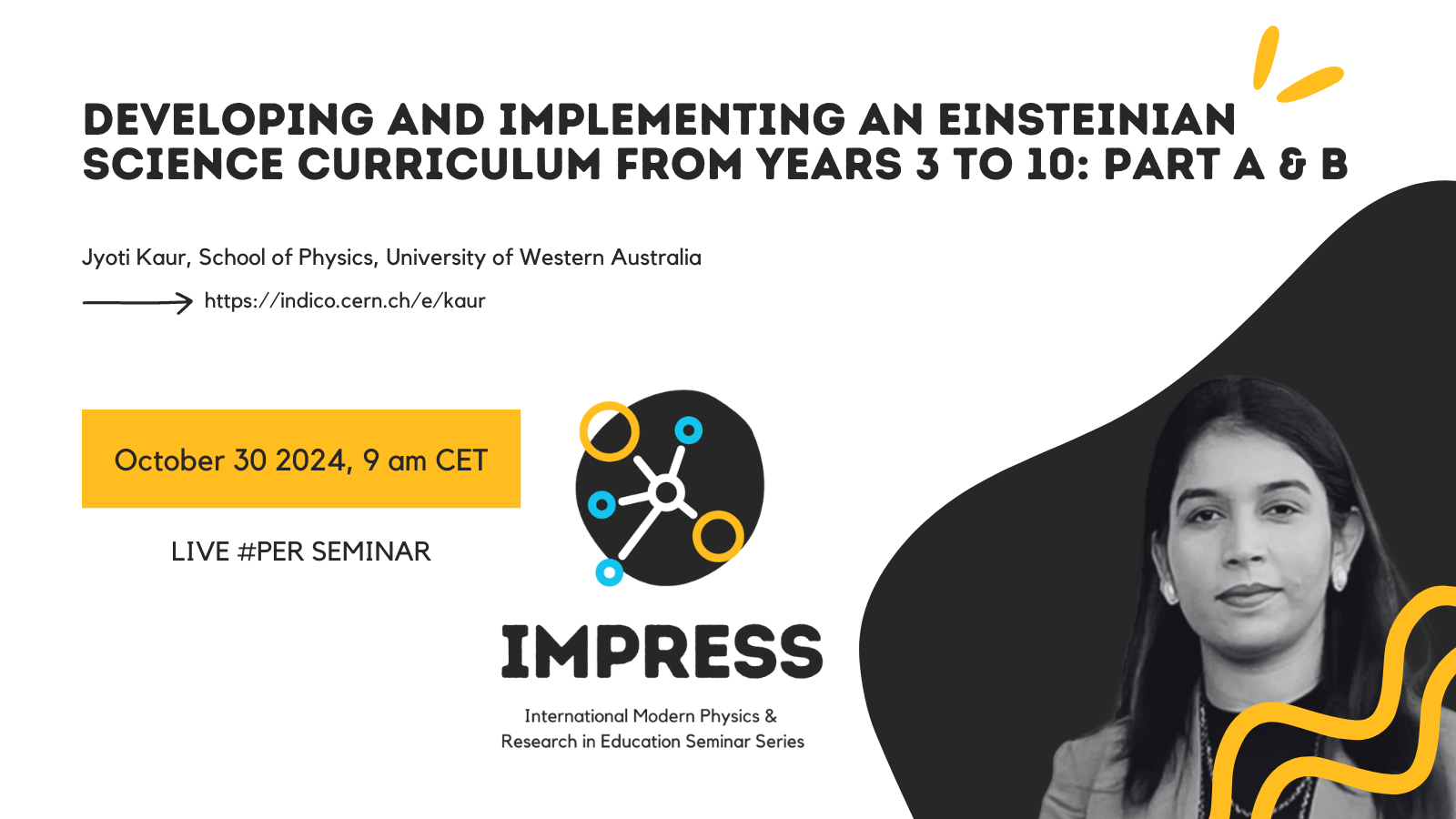Developing and implementing an Einsteinian science curriculum from Years 3 to 10: Part A Concepts, rationale and learning outcomes
by
From the big bang to black holes, from elementary particles and the fundamental interactions that govern our universe to the world's largest and most complex scientific instruments, our knowledge of the world builds on modern physics. To make our current-best understanding available to all, we need to invest in educational research and bridge the gap between those who know science, those who teach science, and those who learn science.
This month, we are going to discuss a paper by Jyoti Kaur, Magdalena Kersting, David Blair, Kyla Adams, David Treagust et al:
There has been a growing realisation that school science curricula do not adequately reflect the revolutionary changes in our scientific understanding of the 20th century. This discrepancy between current school education and our modern scientific understanding has led to calls for the modernisation of the science curriculum. Although there have been attempts to introduce topics of Einsteinian physics (i.e., quantum physics and relativity) to school education, often at the secondary level, we still lack a seamless curriculum in which modern science concepts are gradually introduced in primary and middle schools. Guided by the Model of Educational Reconstruction and following a mixed-methods research design, the Einstein-First project aims to address this gap. Einstein-First has developed and implemented an Einsteinian curriculum from Years 3 to 10 (students aged 7- 16) that resolves the disconnect between science in schools and the modern world. This paper presents the concepts, rationale, and learning outcomes of the curriculum implementation in six Australian schools with 315 students across Years 3 to 10. Our findings lay the foundation for informed curriculum development towards a school education that can enhance students' understanding and appreciation of the fundamental concepts of modern science and its impact on our society.
Paper:
Kaur, T., Kersting, M., Blair, D., Adams, K., Treagust, D., Santoso, J., ... & McGoran, D. (2024). Developing and implementing an Einsteinian science curriculum from years 3–10: A. Concepts, rationale and learning outcomes. Physics Education, 59(6), 065008. https://iopscience.iop.org/article/10.1088/1361-6552/ad66a7

Magdalena Kersting (Department of Science Education, University of Copenhagen, Denmark) and Julia Woithe (Science Gateway Education, CERN, Switzerland)